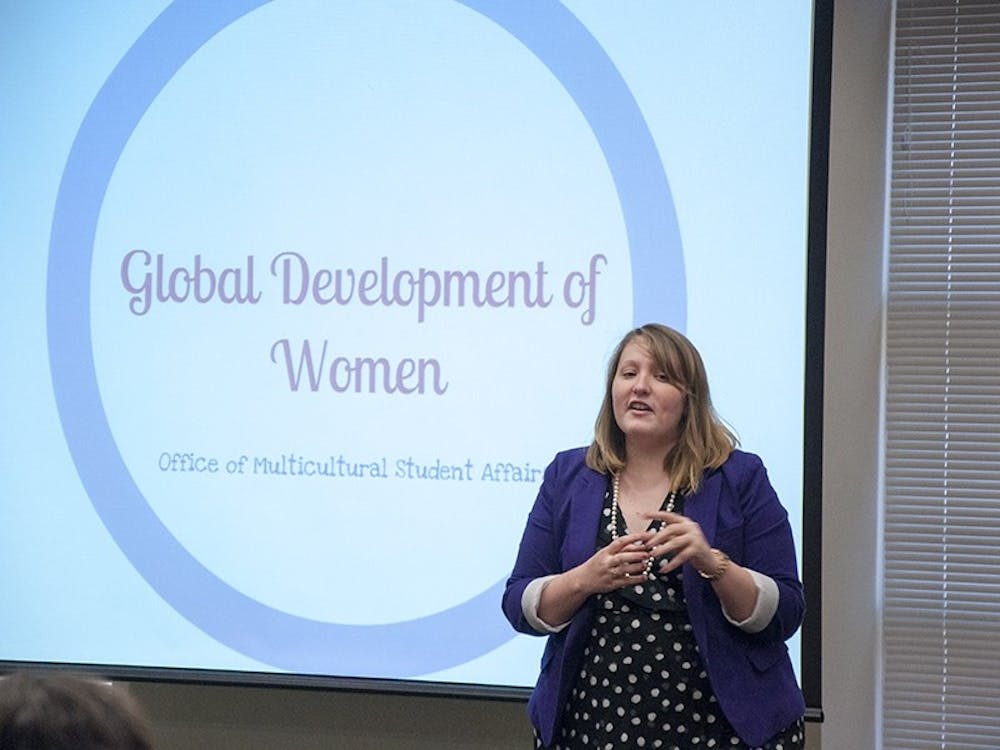Gender inequality subject of videos, discussion
Statistics and stories about gender inequality came to life in a Diversity Dialogue at the Honors Residence Thursday night.
Lizzie Dement, a graduate student in higher education and student affairs, facilitated a discussion about the global development of women, showing three videos and encouraging the students in attendance to talk about them in small groups before a larger group discussion.
The theme of the videos was injustice suffered by women around the world, including inequalities in income and opportunities available across various fields of work.
“Sometimes it seems unholy that a woman could be a director of a firm or could be trying to move up,” Dement said. “In a political setting, it’s like, ‘The men are supposed to be up here. The woman is supposed to be typing at the front desk.’”
In the first video, movie character James Bond was shown on the screen while the voice of M, the head of Foreign Intelligence in the Bond films, narrated facts about gender inequality. M quipped that for someone who is very interested in women, Bond knows very little about them.
Among the statistics M provided was that women do well over half of the world’s work but receive only 10 percent of the pay and own 1 percent of the land. The video also said women are afraid to be on the streets because of the threat of sexual violence, but many are even more afraid to go home.
The second video showed a young Indian woman who was the first woman from her village, as well as the first from her caste, to receive an education. Her parents pressured her to get married, but she went on hunger strike to convince them to allow her to go to college.
The young woman said that she was nervous to go to classes with men twice her age, but her education allowed her to start a business and gave her the means to pay her parents’ medical bills. She added that many young women in her village want to pursue an education because of the precedent she set.
The final video promoted Women for Women International. It discussed a program for women in the eastern Congo, which is described as one of the worst places in the world to be a woman. The organization is sponsoring an initiative to help marginalized women, including survivors of sexual or military violence and those with HIV.
Currently, the initiative serves 10,000 women, giving them vocational skills and teaching them the best practices for farming. In doing so, the organization hopes to give women the means to provide for their families. Many women in the video worked in a field with small children strapped to their backs.
Audience members said the videos brought a more personal take on statistics about injustices women suffer.
“You see the individualization of a story,” said Amanda Clark, a higher education and student affairs graduate student in attendance. “You have numbers that are turned into one person, and that one person’s goal is to touch the heart of someone else.”
Thursday’s discussion was planned by the Office of Multicultural Student Affairs. The next Diversity Dialogue, entitled “That’s So Gay,” will take place next Thursday. It will discuss stereotypes surrounding the lesbian, gay, bisexual and transgender community.

